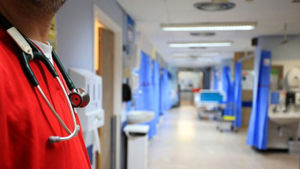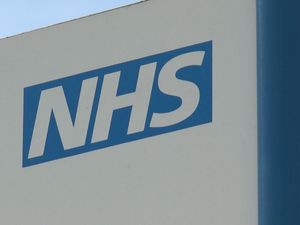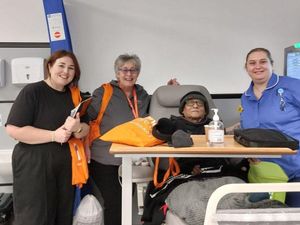50,000 women miss latest breast cancer screening in Black Country and Staffordshire
More than 50,000 women in the Black Country and Staffordshire missed their last screening for breast cancer, NHS figures show.

Women are invited for a breast screening every three years between the ages of 50 and 70 to try and catch cancer early.
But troubling figures show the proportion of women accepting the invitation is declining.
Only 65.6 per cent of the 31,562 women in the Wolverhampton Clinical Commissioning Group area who were due a screening during the three years to the end of March took up the offer.
This means 10,855 women are not up to date with their checks.
Meanwhile in the Sandwell and West Birmingham Clinical Commissioning Group area 66.3 per cent of the 54,504 women were screened, leaving 18,348 not up to date.
In Walsall 70.5 per cent of the 32,989 women were screened, with 9,720 missing the check. While 73.1 per cent of the 41,207 women in Dudley were screened, leaving 11,075 missing the check.
And in Stafford and the surrounding Clinical Commissioning Group areas 74.2 per cent of the 21,262 women were screened, so 5,487 missed the check.
The data measures how many eligible women were checked at least once in the three year period, meaning some women could be years overdue.
Across England the proportion of women who attended their last check was 72 per cent.
Of those who were sent an invitation in the 12 months to March, just 70.5 per cent had attended within six months of their invite, according to NHS Digital.
This is the lowest level since the current screening programme began in 2007.
The UK National Screening Committee says the minimum acceptable level of coverage is 70 per cent, but the NHS is expected to achieve 80 per cent.
Gradually slipping
Addie Mitchell, clinical nurse specialist at the charity Breast Cancer Care, said: "Uptake of routine screening invitations in England has been gradually slipping year-on-year.
"These troubling figures show we’re now only a hair's breadth above the minimum standard.
"While screening is not a one-stop shop, as symptoms can occur at any time, mammograms remain the most effective tool at our disposal for detecting breast cancer at the earliest possible stage."
Almost a third of the 260 CCGs in England failed to meet the minimum target, while only one managed to pass the 80 per cent benchmark.
In Wolverhampton, the uptake rate has fallen every year since 2014-15, when it stood at 69 per cent, while in Sandwell and west Birmingham the rate has fallen every year since 2013-14, when it stood at 68.8 per cent.
In Walsall the uptake rate has fallen since 2012-13, when it stood at 72.6 per cent, and in Dudley it has fallen since 2016-17, when it stood at 74.2 per cent.
Although uptake in Stafford bucked the national trend last year, rising from 69.8 per cent in 2016-17.
The breast screening programme uses an X-ray test called a mammogram to detect tumours before they are large enough to feel.
Detecting cancer early on gives a better chance of survival.
Dr Anne Mackie, director of screening at Public Health England, said it was "concerning" that uptake has fallen, particularly among younger women invited for their first test.
She continued: “We are working hard with NHS and local community healthcare colleagues to understand why this might be and to make appointments as easy as possible to attend for all women who want to get screened.”





